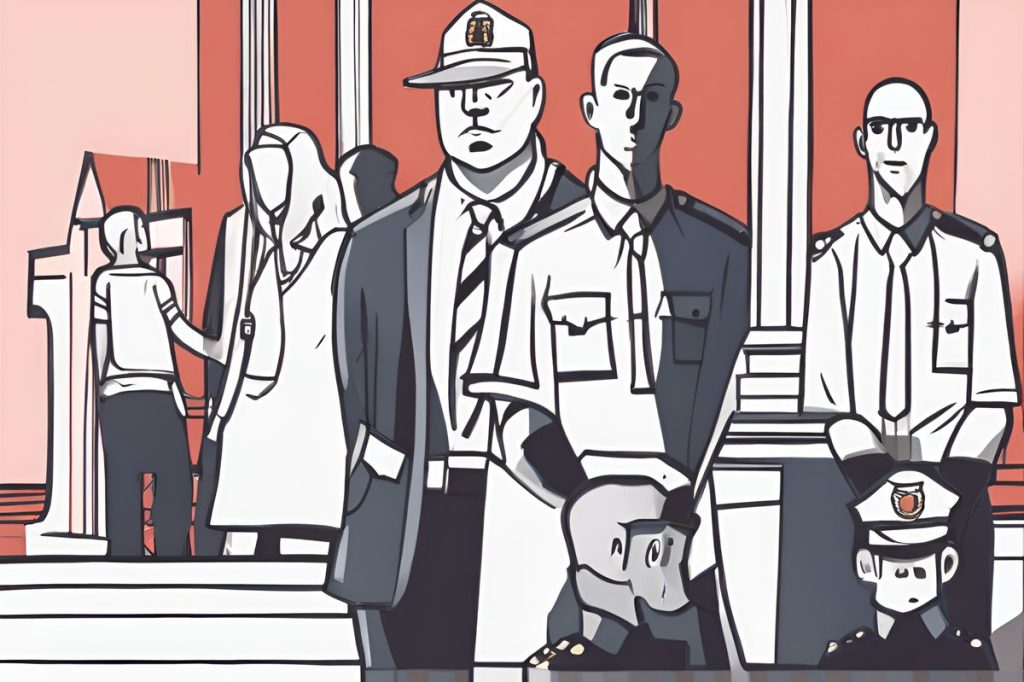The police face accusations of delay and favoritism in the church scandal investigation involving assault and fake miracles at Osiou Avakoum monastery. Concerns arise over evidence tampering and asset transfers, as public demand for transparency and justice intensifies amidst a web of controversy and high-level discussions between law enforcement and religious leaders.
What are the allegations against the police in the church scandal investigation?
Police are accused of delay and preferential treatment in a church scandal investigation involving assault and faked miracles. Concerns involve potential evidence tampering, asset transfers from Osiou Avakoum monastery, and questionable involvement of civilian officers. Public scrutiny demands transparency and justice in the ongoing legal proceedings.
Amidst swirling controversy, police officials have stepped forward to address accusations of preferential treatment in a scandal involving the church. This statement comes in the wake of public scrutiny over a series of videos that depict a monk assaulting a woman and fabricating a miracle.
Questioning Police Procedures
A notable police spokesperson, Christos Andreou, faced the media to vehemently deny any allegations suggesting that the investigation had been delayed. He emphasized the lack of sufficient evidence as the primary reason for not proceeding with arrests. Lawyers for those implicated have pushed back, asserting that the controversial videos have been altered. Their focus on the police’s peculiar approach to the case and possible evidence tampering adds another layer of doubt to the situation.
Concerns were raised about the possibility of the monks fleeing the country. In response, Andreou assured that preemptive measures were in place, like the potential issuance of European arrest warrants to prevent escape. Despite these assurances, the public’s unease persists, fueled by the revelation that high-level discussions occurred between the attorney general, the police chief, and the archbishop, delaying any police action until after a critical Holy Synod meeting.
Cash, Gold, and Civilian Officers
The unfolding narrative took a dramatic turn with the exposure of a covert operation involving a substantial transfer of assets from the Osiou Avakoum monastery. According to Andreou, this operation was orchestrated by the Tamassos Bishop Isaias, who indicated that only “valuable items” like gold would be moved. However, it later surfaced that an astonishing €800,000 in cash was also involved, a detail the police were allegedly uninformed about.
The handling of the money during this operation has sparked significant discontent among lawmakers. Instead of securing the cash for further investigation, the police stood by as it was transported to the bishopric without any intervention. The involvement of plainclothes officers in the operation has raised further questions, especially with reports suggesting that even the far-right party Elam leader Christos Christou was in attendance. The mystery deepens with unconfirmed rumors of the secret service’s involvement, possibly linked to Bishop Isaias.
In the midst of these turbulent events, the police spokesman was reticent about when the money came under police scrutiny. However, Andreou confirmed that while the monastery has been searched multiple times, the bishopric remains untouched.
The Role of Legal Entities
With the attorney-general ordering an investigation into the whole affair, the spotlight is now on the legal entities to ensure transparency and justice. The case’s complexity is exacerbated by the involvement of religious figures and the historic influence of the church, making the pursuit of truth all the more challenging.
Police forces are under pressure to maintain objectivity and rigor in their investigations, as the public watches closely. As the threads of this narrative continue to unravel, the need for clarity and accountability has never been more critical.
What are the allegations against the police in the church scandal investigation?
Police are accused of delay and preferential treatment in a church scandal investigation involving assault and faked miracles. Concerns involve potential evidence tampering, asset transfers from Osiou Avakoum monastery, and questionable involvement of civilian officers. Public scrutiny demands transparency and justice in the ongoing legal proceedings.
How has the police responded to accusations of delay and favoritism in the investigation?
A police spokesperson, Christos Andreou, has vehemently denied allegations of delay in the investigation. He cited a lack of sufficient evidence as the reason for not proceeding with arrests. However, lawyers for those implicated have raised concerns about possible evidence tampering and the police’s handling of the case.
What is the significance of the covert operation involving asset transfers from the Osiou Avakoum monastery?
A covert operation orchestrated by Tamassos Bishop Isaias involving a substantial transfer of assets, including €800,000 in cash, from the Osiou Avakoum monastery has raised eyebrows. The handling of the money and the involvement of civilian officers in the operation has sparked discontent among lawmakers and the public, adding another layer of complexity to the scandal.
What steps are being taken to ensure transparency and justice in the investigation amidst high-level discussions and controversy?
The attorney general has ordered an investigation into the entire affair, placing a spotlight on legal entities to ensure transparency and justice. With the involvement of religious figures and the historic influence of the church, the police are under pressure to maintain objectivity and rigor in their investigation to address public concerns and demand for accountability.

